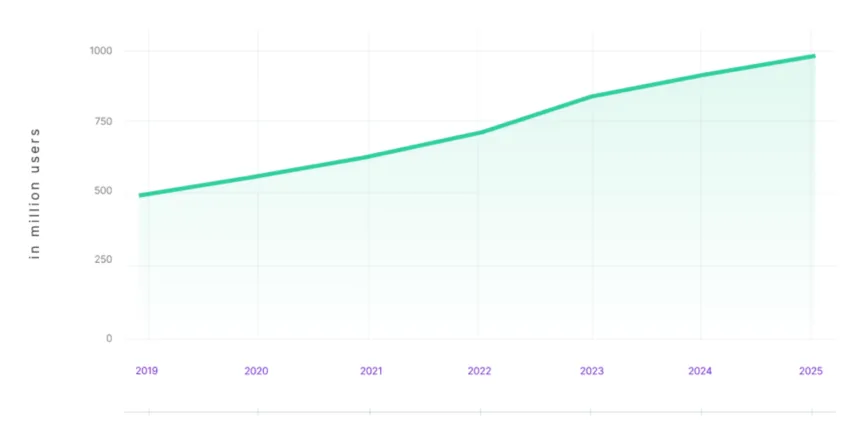
YEREVAN (CoinChapter.com) – Apple has removed several major cryptocurrency exchange applications, including Binance and KuCoin, from its App Store in India. This action comes after the Financial Intelligence Unit (FIU) of the Indian government issued show-cause notices to nine offshore virtual digital asset service providers.
Reasons Behind Apple India Decision
The government sent these notices due to non-compliance with India’s money laundering laws and allegations of operating illegally within the country.
The FIU had also requested the IT Ministry in India to block the websites of all nine cryptocurrency services. However, despite being removed from Apple’s App Store, these applications continue to be available on Google’s Play Store, and their websites are still accessible in India.
Notably, Binance has faced additional scrutiny, especially in the US, where it has been investigated for breaking anti-money laundering laws.
This move by Apple and the Indian government reflects India’s strict stance on cryptocurrencies and the trading platforms that facilitate their exchange.
The Reserve Bank of India had imposed a ban on cryptocurrencies about half a decade ago, which India’s Supreme Court eventually overturned. Despite this, the central bank has continued to advocate for outlawing cryptocurrencies, likening them to Ponzi schemes.
India’s Strict Stance on Cryptocurrencies
The Indian government has also been taxing virtual currencies, including a 30% tax on gains and a 1% deduction on each crypto transaction, which led many Indian traders to shift to global cryptocurrency platforms, potentially evading taxes. In response, Indian cryptocurrency exchanges like CoinSwitch Kuber and CoinDCX have enforced strict know-your-customer verifications, unlike many global platforms.
The Indian government has brought cryptocurrency trading and other digital asset transactions under the ambit of its anti-money laundering (AML) laws. This step aligns India with the global trend of regulating digital asset platforms with AML guidelines similar to those followed by other regulated entities like banks and stockbrokers.
According to these regulations, all cryptocurrency businesses in India must perform mandatory Know Your Customer (KYC) checks, monitor transactions, and report any suspicious activities to the authorities. This move aims at curbing illegal activities and ensuring greater transparency in cryptocurrency transactions.
These AML measures are in line with the guidelines of the Financial Action Task Force (FATF), the international body that formulates policies to combat money laundering and terrorism financing.
The FATF classifies various organizations as Virtual Asset Service Providers (VASPs), including cryptocurrency exchanges, stable coin issuers, and under certain conditions, some DeFi protocols and NFT marketplaces. VASPs are responsible for complying with AML regulations, which include conducting KYC checks and monitoring transactions for any suspicious activities.
What Do Crypto Enthusiasts Think?
The Indian crypto industry has generally responded positively to these developments, viewing them as a step towards the formal recognition and regulation of the cryptocurrency sector in the country.
This regulatory clarity could also foster a safer and more stable environment for crypto investors and users in India.

This update in AML legislation is significant for the cryptocurrency sector in India, given the growing concerns globally over the use of digital currencies for illegal activities. By bringing cryptocurrency transactions under the purview of AML laws, the Indian government aims to establish a more secure and legally compliant environment for digital asset trading.


